This has been a crazy road,” waxes Truceful Entertainment after their failed Kickstarter campaign for Fritz. It sounds like either the start of a high school graduation speech or the beginning of a Kickstarter update. You can’t blame them though; the campaign for Fritz might be the strangest successful Kickstarter ever. Eagle-eyed viewers might be shouting “typo,” but that is not a mistake. That’s where things get interesting.
A Promising Start
July 28th, 2014 was just another day for Kickstarter. Eventual success stories like C is for Cthulhu and Gay Men Draw Vaginas burst onto the scene. Other ill-advised failures like My Friend Jeff were suspended before they had a chance to not go anywhere. It was a quiet day for videogames however, except for Fritz: A Video Game About World War One. Presumably it was a working title.
It received coverage from a few gaming sites instantly. For a while it looked like a safe bet it would be funded, and for good reason. The concept behind Fritz was solid, sure, but it also had the advantage of the developers knowing what they were doing.
“Fritz is a narrative RPG with brutal real-time combat about life in the trenches of the First World War,” the Kickstarter page reads. “Most of the gameplay is comprised of everyday activities like guard duty, getting food, and talking to your fellow soldiers. Attacks are sparse, but deadly and challenging.”
Fritz would be one of those rare videogames that takes place both in World War I, while also maintaining an anti-war stance. It would have focused on the horrors of war from the perspective of an average soldier, not on a powerful being who could absorb hundreds of bullets. Player choice was going to play a factor, determining which of the multiple endings you received, though what this meant in-game wasn’t elaborated on.
Your stats determined how well you’d do in battle, on how well you’d perform your duties. There would have days when food for the whole army was running low, so you’d have to make due with a piece of bread and not much else. I can see a lot of gameplay mechanics stemming from this, like giving your food to your friends, going on raids at night behind enemy lines to steal supplies, or going on strike with other soldiers for better conditions.
With all the coverage it was getting, the great interaction between the developers and the community, and the game itself looking solid, Fritz looked like it was on track to hit it’s $15,000 goal. Kicktraq even estimated the campaign would hit its funding goal for halfway through it’s campaign.
The Guns of August
August 27th, 2014 was the final day of the campaign. It collected over $12,000 to that point but was still short of its goal. The beginning and final days of a Kickstarter campaign are always the most successful, so the team was still hopeful. Sure enough, a miracle came as a backer raising their previous pledge to $3,000, tipping the scales just enough in Fritz’s favor. As the deadline inched closer, Fritz raised $15,073, as close as you’ll ever find on a crowdfunding site.
Champagne bottles were supposed to be popped. Photos of the developers half-drunk that they were going to feel embarrassed about later were supposed to be taken. Development was supposed to continue. But none of that ever happened. That same backer who raised their pledge to $3,000 messaged Truceful Entertainment with dire news. It was a mistake. They meant to raise their pledge only slightly, perhaps accidentally adding one zero too many. This came after another backer lowered their pledge by $2,000 hours before Kickstarter’s 24 hour pledge rule.
Kickstarter has long had the 24 hour rule, listed under the “How Funding Works” section of it’s Terms of Service. It states that if you donate to a campaign, you cannot decrease or remove that pledge within 24 hours of the campaign’s deadline if doing so will drop the campaign below its funding goal. The person who lowered their $2,000 donation did it before this deadline. There is a safeguard of sorts in place; you can contact Kickstarter’s customer service, but whether they allow you to remove your pledge is up to them.
Somehow this mystery backer ended up talking directly to Truceful about the problem. Instead of waiting a few hours and refunding the backer after their success, the team canceled the campaign, freeing every backer of their pledges. In a matter of hours, the team went from holding their breaths, waiting for the numbers to grow, to partying like it was 1999, to having to pick up the pieces of a broken dream and an outdated reference.
As is so often the case on the internet, conspiracy theories began circulating almost immediately. Some were quick to speculate that the backer’s intention was to troll the developers all along. There is precedent for such a thing, it happened on the campaign for Dimension Drive.
Dimension Drive was another videogame campaign on Kickstarter that was close to failing with only hours until the deadline. For 2Awesome Studio, it looked like the campaign would fail like so many others. That’s when their own miracle showed up under the name of Johnathan, donating $7,000 that saved their campaign. It sounded too good to be true, and it was. This Johnathan character used a fraudulent credit card, and the money was taken away at the last possible second by Kickstarter administrators. Johnathan circumnavigated Kickstarter’s strict 24 hour rule, and he did it only nine months after the cancellation of Fritz.
“Accidents happen,” starts SilencedScream in the Fritz comment section, “but a $3000 one – almost the exact amount needed? […] It kinda looks like a cruel joke against those who were excited to see this game made.”
The backer who made the donation wasn’t named. I’m reminded of Steve Bartman, a baseball fan who attended the 2003 National League Championship Series. A lifelong Cubs fan, a ball came his way and he reached out to catch it, a prized procession for any fan. The ball was still in play however, and he ended up costing his precious Cubs the victory. He didn’t even get to keep the ball, because he dropped it. Bartman received so many death threats his home-state governor suggested he join Witness Protection. Can we say it would have gone any differently for this backer, in today’s gaming culture?
We’ll never know for sure if this was an honest mistake or another case of trolling, however unlikely. Whoever donated the $3,000 had to gamble that Truceful Entertainment would rather shutter their campaign, let alone give them a refund. It would have been easier to pull a Johnathan and use a fraudulent credit card, but it’s hard to understand trolls. Kickstarter apologized about the situation, but nothing changed. Dimension Drive eventually got made, but losing Fritz’s Kickstarter was too much for Truceful Entertainment to bear.
The Lost Game
After posting their final update detailing the cancellation, Truceful Entertainment vanished, taking Fritz with them. I attempt to contact several team members, but those requests fell on deaf ears. Their Facebook and Twitter accounts have been deleted, and all that remains besides the Kickstarter is an old IndieDB profile, and long forgotten forum posts on TIGSource.
Did the developers do the right thing? In their update, they say they cancelled the campaign because they didn’t want to launch anyone into financial ruin. It’s easy to call them heroes; whoever donated the money could have been on a tight budget and a single $3,000 expenditure is something few of us can manage. Keep in mind refunds aren’t instantaneous. You could also call them damn fools. At best, the backer made a mistake, and it’s not fair that Truceful had to pay for it. That backer could have waited for their refund, and Truceful could have made due with a $12,000 budget. Either way, sometimes life isn’t fair, and wading through all the “could haves” and “should haves” doesn’t do any good.
Kickstarter’s 24 hour rule isn’t as controversial as it could be. It’s a good idea in theory and practice, keeping other “Jonathans” from trying anything funny. Trolls will always slip through the cracks, but that doesn’t mean measures can’t or shouldn’t be taken to minimize the chances of them acting out. Kickstarter’s customer service needs to act quicker in these situations, but when money is involved there’s always a chance of someone getting screwed over.
Speaking of which, why did Fritz need a last minute Hail Mary to secure funding in the first place? When I look at Fritz and it’s Kickstarter page, I see a well run campaign. There’s a ton of information about the game and the developers, it’s clearly stated what the money is for, there are plenty of screenshots, and the developers were active in the community. At the very least, it was better run than several campaigns that did receive funding, not naming names.
The timing of the campaign might have something to do with it. It went live just four days after Valiant Hearts released. Valiant Hearts is a 2D narrative heavy World War I game that was about the horrors of war. Sound familiar? It’s pure speculation, but that goes to show I don’t know what to say. Original concepts always have a harder time on Kickstarter, and figuring out why they failed can be impossible. Who can say if Fritz would have been a great game, but it’s one that deserved to get made.
All that remains of Fritz is it’s Kickstarter page, and two old pages on IndieDB and TIGSource. A memorial of words and pictures rendered meaningless by a single mistake, the developer’s own compassion or perhaps foolishness, and the march of time delivering an endless slew of both resounding victories and broken dreams.

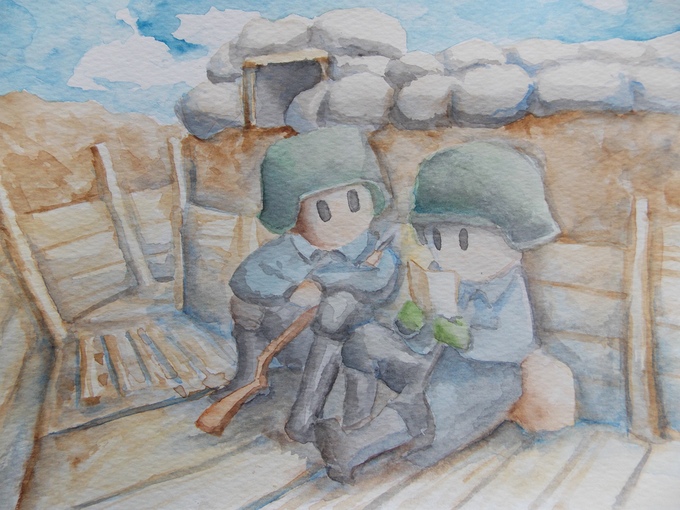
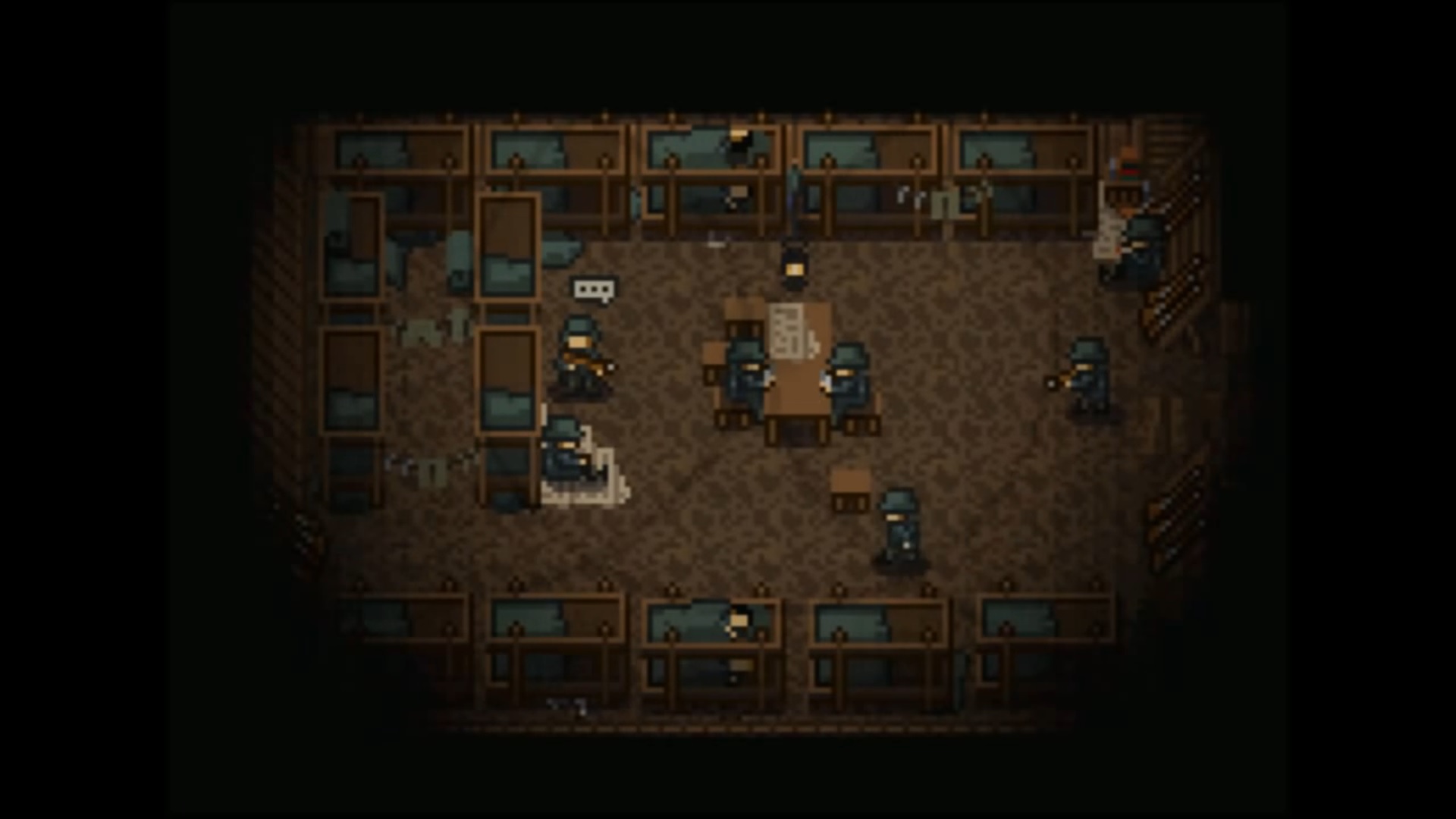
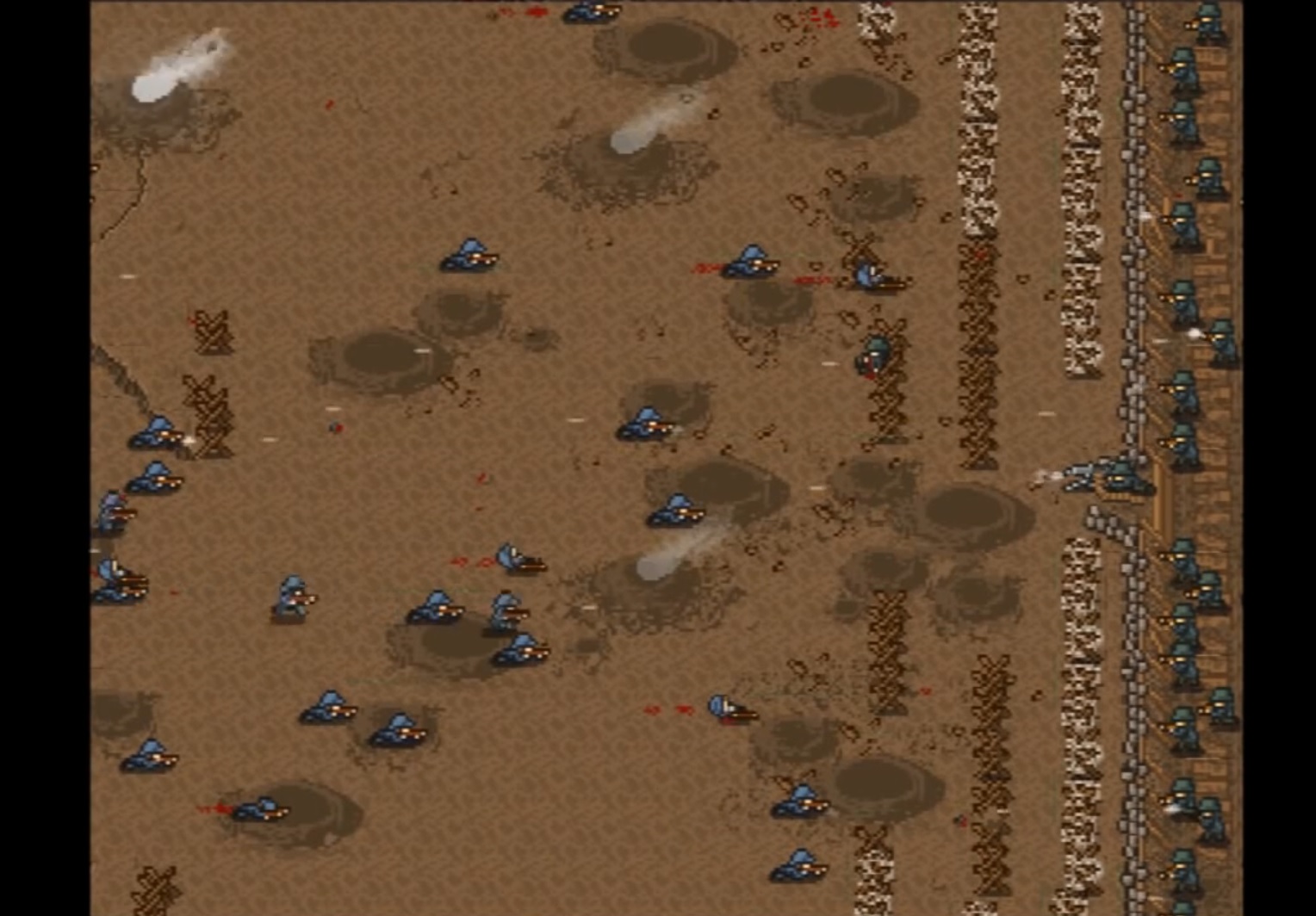
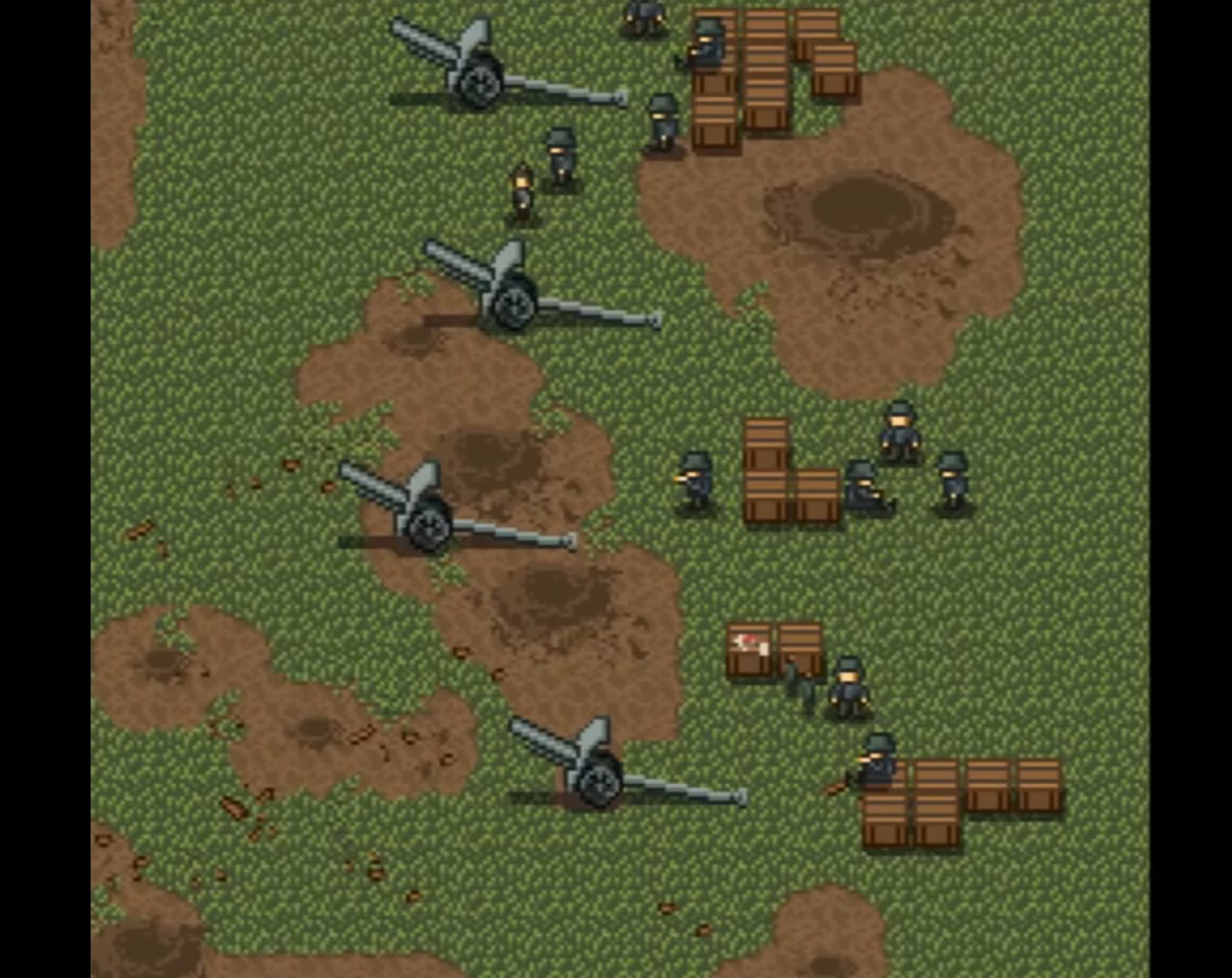
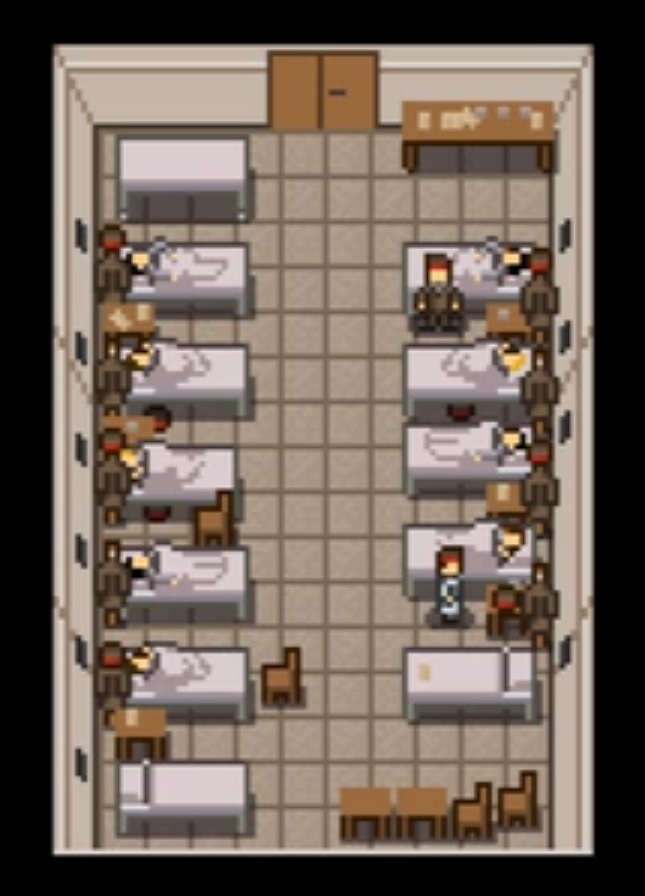
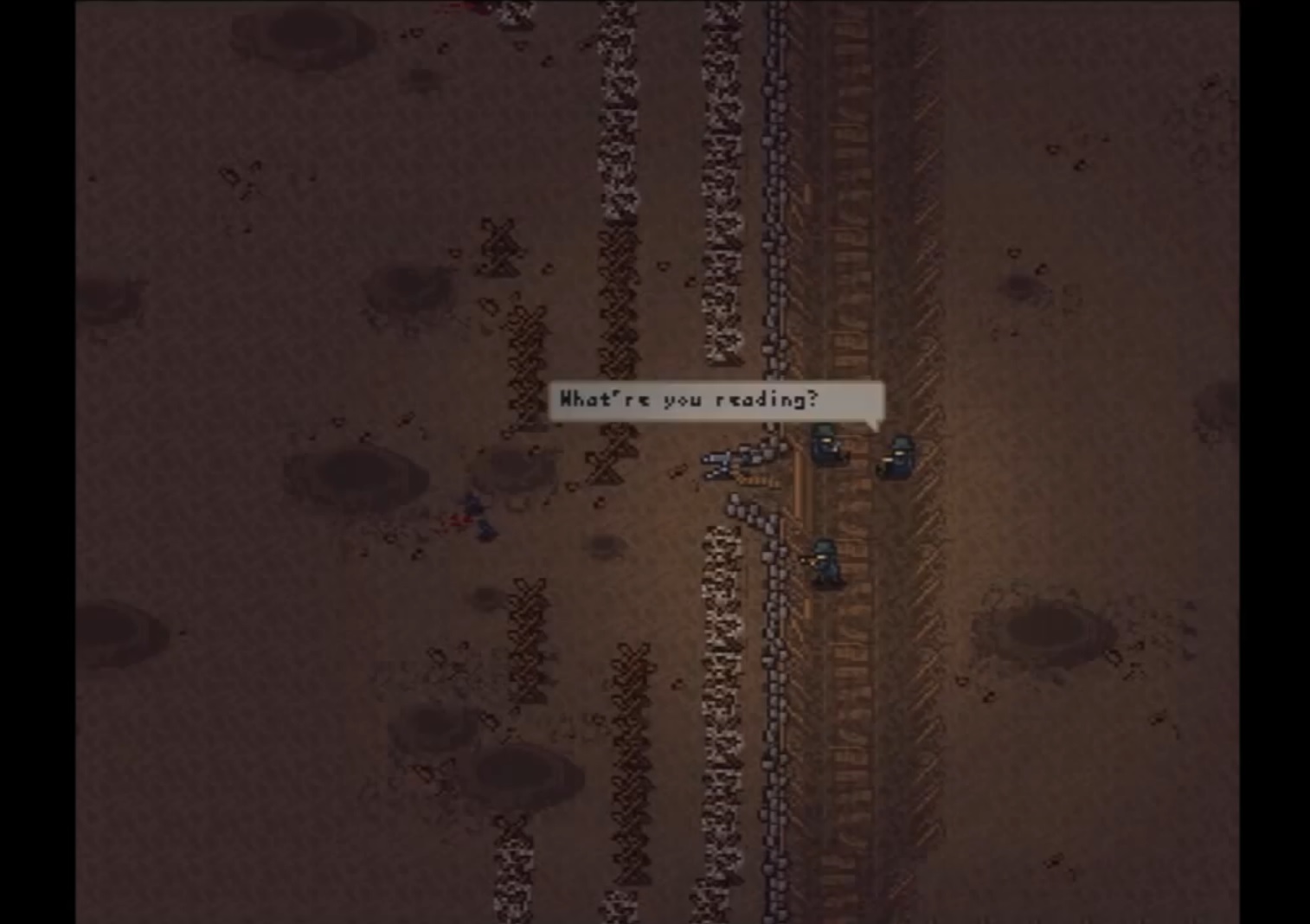



A bit late to the article here, but I am glad it was written. I had backed this game, and had high hopes for it! It’s demise was a real bummer, and I really wish you were able to get a hold of the devs and maybe give us out here a line with which to plead with them. Having played “This War Of Mine”, I could see “Fritz” being something similar and impactful. Hopefully someday, somehow, it might see the light of day.